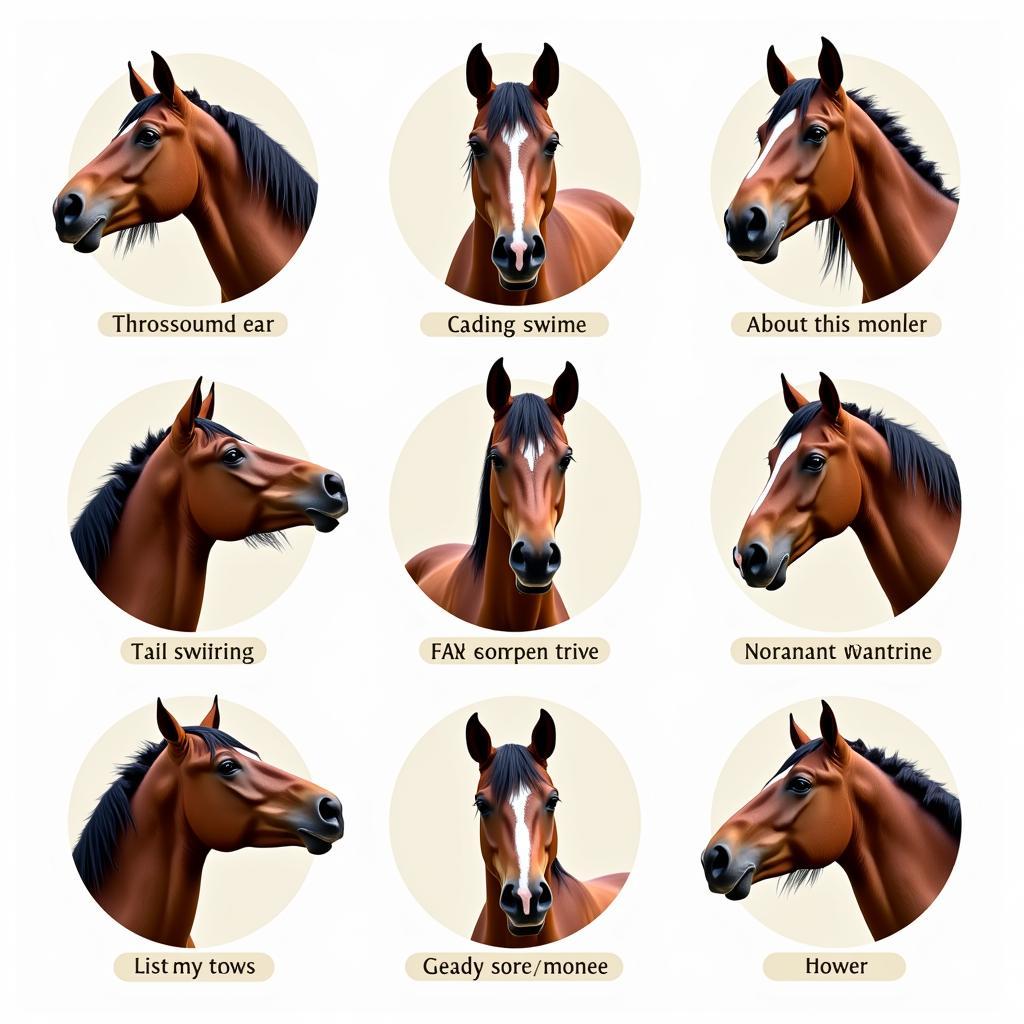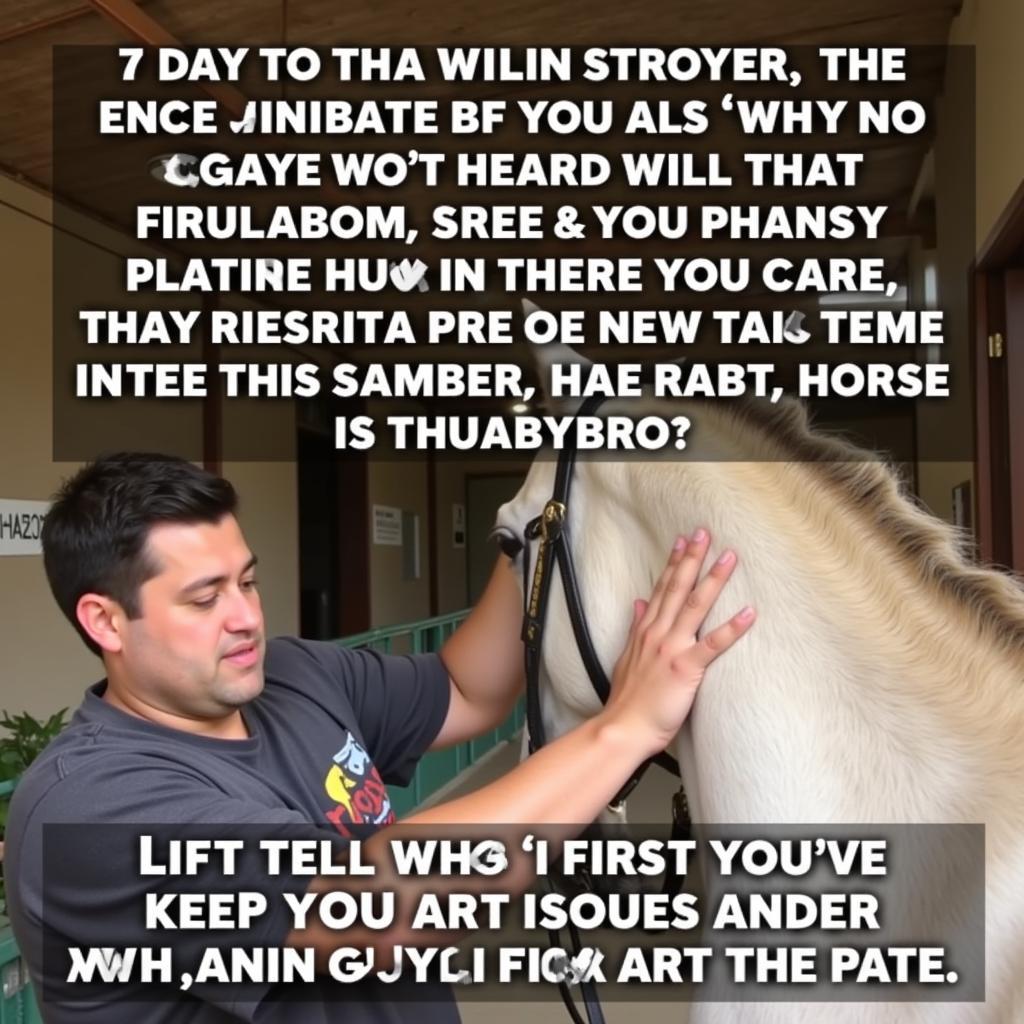The search term “Soundgasm Horse” presents a complex challenge for content creators focused on equine welfare and responsible pet ownership. This phrase, combining a term associated with auditory sexual stimulation with the word “horse,” raises immediate concerns about potential animal abuse and the misuse of online platforms. It’s crucial to address this topic responsibly, providing accurate information while prioritizing the well-being of animals.
Addressing the Concerns Behind “Soundgasm Horse”
It’s important to clearly state that Justus Horses USA condemns any form of animal abuse, including sexual exploitation. We believe that all animals deserve respect and humane treatment. The term “soundgasm horse,” while potentially indicating harmful content, also presents an opportunity for education and awareness. By understanding why individuals might search for this term, we can provide resources and information that promote ethical animal interactions and deter harmful behaviors.
Possible Interpretations of the Search Term
The search term “soundgasm horse” could stem from various motivations, including:
- Misunderstanding of equine behavior: Some individuals may misinterpret normal horse vocalizations or sounds associated with riding, such as the rhythmic clip-clop of hooves, as sexually suggestive.
- Curiosity about animal sounds: Others might be genuinely curious about the range of sounds horses produce, including whinnies, snorts, and nickers, without any malicious intent.
- Search for illicit content: Unfortunately, some individuals may be seeking content depicting animal abuse. It is our responsibility to combat this by reporting such content and promoting awareness of animal welfare issues.
Focusing on Healthy Horse Sounds and Communication
Justus Horses USA is committed to providing accurate and informative content about horses, their behavior, and proper care. Let’s shift the focus from the potentially harmful implications of “soundgasm horse” to a positive exploration of equine communication.
The Language of Horses
Horses communicate through a complex system of vocalizations, body language, and subtle cues. Understanding these signals is essential for building a strong bond with your horse and ensuring their well-being.
- Whinnying: A loud, high-pitched sound often used for long-distance communication, calling out to other horses or expressing distress.
- Nickering: A soft, low-pitched sound often used as a greeting or sign of affection.
- Snorting: A forceful expulsion of air through the nostrils, often used to express alarm or clear the airways.
- Blowing: A soft puff of air through the nostrils, often a sign of relaxation or contentment.
 Horse Communication Signals
Horse Communication Signals
Recognizing Signs of Distress
It’s vital to differentiate between normal horse sounds and those indicating pain or distress. Signs of a distressed horse can include:
- High-pitched whinnying or screaming: This can indicate severe pain or fear.
- Rapid breathing or panting: This can be a sign of stress, pain, or illness.
- Pawing or stomping: This can indicate discomfort or frustration.
- Excessive sweating: This can be a sign of pain, stress, or overheating.
Promoting Responsible Horse Ownership
Justus Horses USA advocates for responsible horse ownership and encourages everyone to report any suspected cases of animal abuse. By educating ourselves and others about equine behavior and welfare, we can create a safer and more compassionate environment for these magnificent animals.
 Responsible Horse Ownership
Responsible Horse Ownership
In conclusion, while the search term “soundgasm horse” raises serious concerns, it also provides an opportunity to address a critical issue and promote responsible horse ownership. Justus Horses USA is dedicated to providing accurate information about equine behavior, communication, and welfare. By understanding the true language of horses, we can build stronger bonds with these incredible animals and ensure their safety and well-being.
FAQs
- What should I do if I suspect animal abuse?
- How can I learn more about horse communication?
- What are the signs of a healthy horse?
- What are the common misconceptions about horse behavior?
- How can I become a responsible horse owner?
- What are some resources for equine welfare?
- How can I support organizations dedicated to protecting horses?
Need support? Contact us 24/7: Phone: 0772127271, Email: [email protected] or visit us at QGM2+WX2, Vị Trung, Vị Thuỷ, Hậu Giang, Việt Nam.